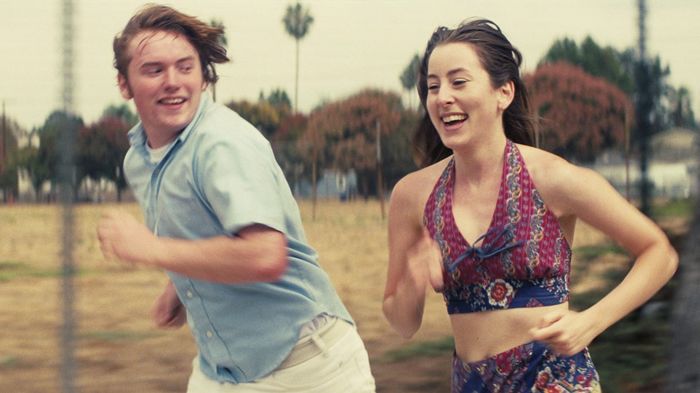No women, but why?
Maddy Bowers criticises the Academy Awards for once again omitting female-centric narratives from the ‘Best Picture’ category, arguing that it perpetuates a stale, male worldview

Two years ago, SNL’s Melissa Villasenor took to the Weekend Update desk to give a musical preview of the year’s Academy Awards. The lyrics, set to an undeniably catchy tune, described what was at the heart of most of the Best Picture nominees and branded by The Academy as important viewing: “white male rage”. The year is 2022 and little has changed.
Facts surrounding this notion are striking: The Hurt Locker (2008), the first film directed by a woman to win Best Picture, fails the Bechdel test; and of the top 100 grossing films in 2019, women comprised 34% of all speaking roles. These figures attest to the unwillingness of both the Academy and the public to recognise that films containing complex, nuanced, and significant female roles are being treated as less important than others.
This issue holds real significance right now, in the midst of awards season. At this year’s Academy Awards none of the five actresses nominated for Best Actress come from films nominated for Best Picture. One of these actresses is Kristen Stewart, nominated for her portrayal of Princess Diana in Pablo Larrain’s Spencer (2021). A biopic concerning a seminal figure with a rich and complex life, Spencer ticks so many boxes of what counts as a typical “Oscars film”.
“Stories about women have always been seen and dismissed”
In recent years, we have seen the stories of screenwriter Herman J. Mankiewicz (Mank (2020)); singer Freddie Mercury (Bohemian Rhapsody (2018)); former Vice President Dick Cheney (Vice (2018)); and the father of Venus and Serena, Richard Williams (King Richard (2021)), in the Best Picture line up. However, films with women as protagonists, such as Spencer, I, Tonya (2017), and Jackie (2016), were not nominated for Best Picture. A glimpse at Rotten Tomatoes scores suggests that there is nothing to prove why the male-centric films should be nominated whereas the female-centric ones are snubbed, with films such as I, Tonya (rated 90%) significantly praised over Bohemian Rhapsody (rated 60%). Therefore, we cannot help but wonder whether the gender difference has a hand in determining the nominations, at least at a certain level.
I’d argue that there is one simple explanation as to why these films are not voted for. In 2019 and 2020, the voting membership of the Academy stood to be 68% male and only 32% female. While female audiences will watch and appreciate a film outside of their perspective and lived experience, it does not always go both ways. At public screenings for Greta Gerwig’s 2019 adaptation of Little Women, it was noted that the audiences were overwhelmingly female-identifying. This has a particular poignance for a film in which the protagonist ponders: “Who will be interested in a story of domestic struggles and joys? It doesn’t have any real importance”. This is exactly how stories about women have always been seen and dismissed, from the old Hollywood melodramas to the present where female-led comedies are readily written off as “chick-flicks”.
“Many people look to the Oscars as guidance for what narratives deserve to be celebrated”
I believe this bias is rooted in the fact that masculine narratives have been historically promoted as paragons of literature. Academy members will enter a screening or turn on their televisions with some preconceived judgement about what they deem serious enough to be of note, this generally being stories that reflect their own experiences. This is even more important considering that the average age of Academy membership skews much older, and these older voters may be influenced by traditionalist views.
Why does this matter? When Jaws was released in 1975, Americans began listing sharks as among their top ten fears. In 1995, the move to having James Bond drive a BMW rather than an Aston Martin earned BMW $240 million in presales alone. Studies show that the films we watch determine our career choices, our hobbies, and impact our mental health and relationships. Stories, and films by extension, help us to see the world and understand where we stand in it.
So, if our worldview is being shaped by this singular perspective, the impact it has on how we women view ourselves, and how others view us is extremely significant. Many people look to the Oscars as guidance for what narratives deserve to be celebrated and for what are currently the most prescient. Therefore, they should be one of the first places to honour and promote a diverse range of films.
However, there are some instances of hope such as how Chloe Zhao became the second woman to win the Oscar for best director, for her film Nomadland (2020), which centred around a woman protagonist. Though small, this is a significant step in the right direction on the journey towards recognising women’s narratives.
Ultimately, stories matter: the stories we experience matter, the stories we tell matter, and the stories we choose to promote matter. They open our minds and teach us how to empathise with experiences outside of our own. To best harness the power of films within our society as a force for good, we need to embrace films outside of the too-often-told tales of “white male rage”.
 Comment / Cambridge students are too opinionated 21 April 2025
Comment / Cambridge students are too opinionated 21 April 2025 Comment / Does the AI revolution render coursework obsolete?23 April 2025
Comment / Does the AI revolution render coursework obsolete?23 April 2025 Comment / Cambridge’s tourism risks commodifying students18 April 2025
Comment / Cambridge’s tourism risks commodifying students18 April 2025 News / News in brief: campaigning and drinking20 April 2025
News / News in brief: campaigning and drinking20 April 2025 News / Candidates clash over Chancellorship25 April 2025
News / Candidates clash over Chancellorship25 April 2025






